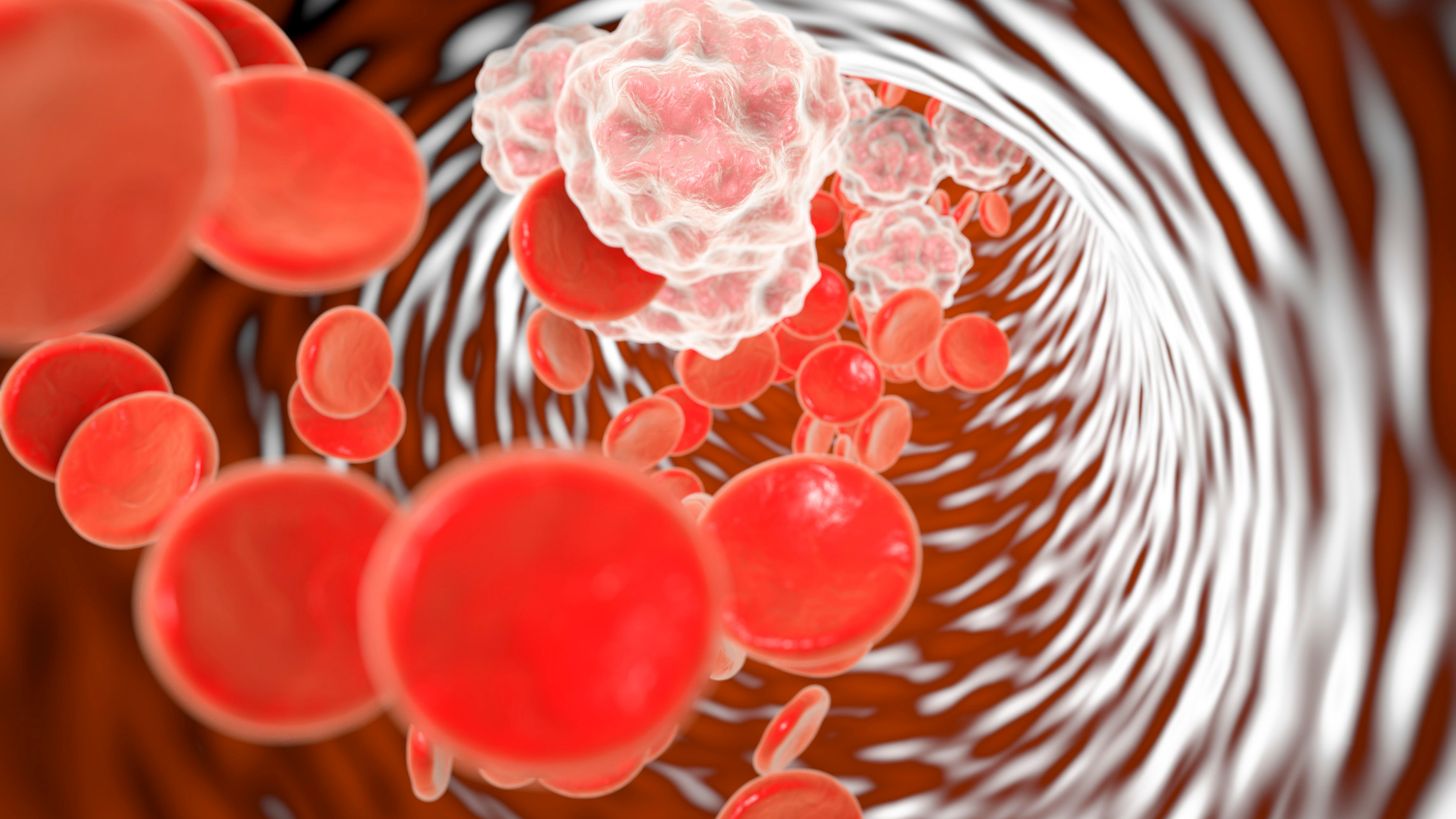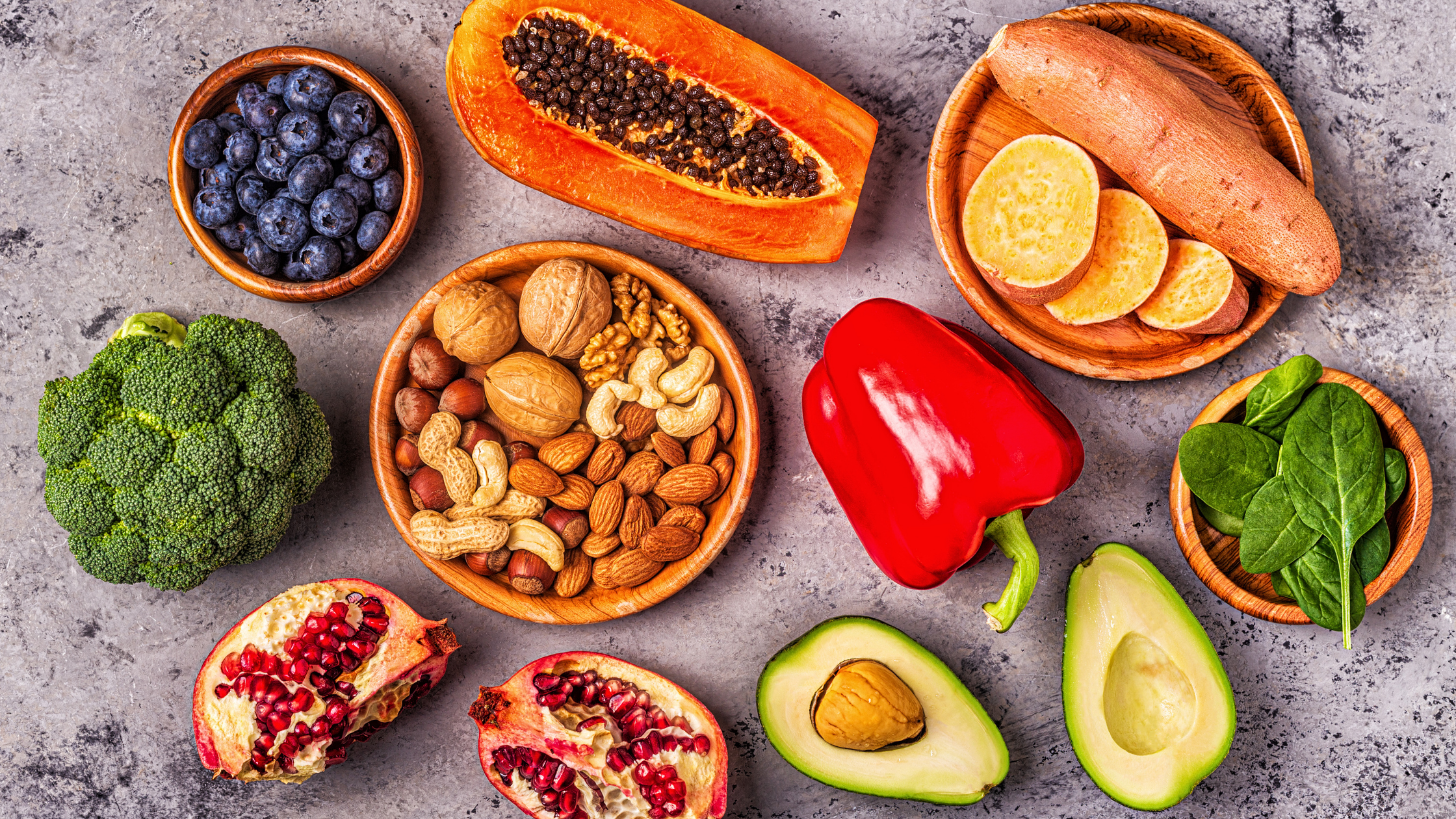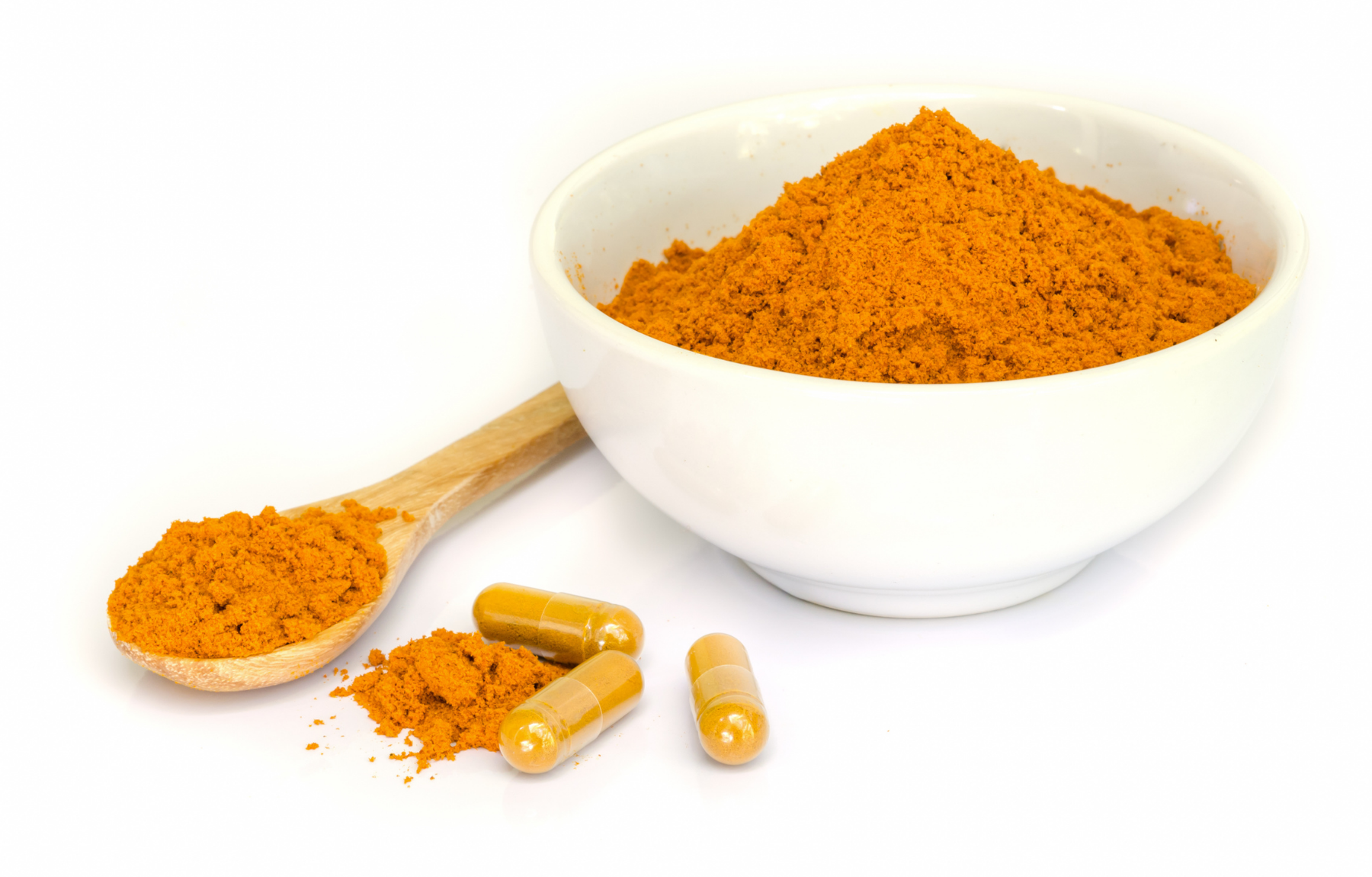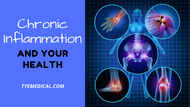How Does Chronic Inflammation Affect Your Health?
Written by Tye Medical on May 5th 2021
Chronic inflammation has become a hot topic, capturing attention in health headlines across the internet. Your doctor might have even tested your blood for inflammatory markers.
So what’s the big deal?
Medical researchers consider chronic inflammatory diseases to be the most significant cause of death worldwide. If you traced many chronic illnesses back to their roots, you’d find the starting point was long-term or widespread inflammation in the body.
And while many things can cause this typically natural reaction, you’ll find certain foods are often the catalyst.
But not all inflammation is harmful. When you’re sick, injured, or have been exposed to toxins, you’ll want your immune system to initiate inflammatory protocols to protect your body. Most of the time, these responses are localized and confined to the injured area.
It becomes a problem when the inflammation settles in, lingers, and harms healthy tissues. Eventually, this can lead to irreversible inflammatory diseases.
Whether you want to ward off this problem before the onset or fight against a current issue, knowing the symptoms and rethinking your diet are critical first steps.
Understanding Chronic Inflammation

When something distresses or damages your body’s cells, those cells release chemicals that trigger an immune response. Inflammation is part of that reaction. It’s your body’s way of fighting infections, healing injuries, and pushing back toxins.
An acute response lasts a few hours or days because most threats don’t last longer than that.
But if something in your body or environment is frequently triggering your immune system, you could be living with long-term inflammation. Wherever you have chronically inflamed cells, you’ll also find some level of tissue or organ damage.
What Causes It?
What are some of those triggers that keep your immune system revved up?
- Autoimmune disorders
- Long-term exposure to toxins or chemicals
- Obesity
- Chronic stress
- Smoking
- Alcohol
- Food sensitivities/allergies
- Standard American Diet (SAD)
Autoimmune diseases can generate widespread inflammation, but sometimes long-term inflammation causes autoimmunity.
However, doctors aren’t always sure what causes long-term inflammation in some people.
Signs of Chronic Inflammation

When part of your body is acutely inflamed, you’ll have more pronounced symptoms like pain, redness, and swelling. But long-term inflammation symptoms are subtler and much easier to overlook.
Common symptoms include:
Body Pain
You have achy muscles and joints because your immune system is attacking them, causing acute inflammation symptoms like redness, swelling, and pain. In this case, chronic inflammation also leads to acute inflammation.
Fatigue/Low Energy
Even with adequate sleep, you feel run down, like you’re sick. This is because your immune system is active and working overtime to produce new immune cells. All this activity saps your energy.
Poor Digestion
It can cause bloating, abdominal pain, constipation, and loose stools. Sometimes, this type of inflammation leads to leaky gut syndrome (intestinal permeability). It’s a condition that allows bacteria and toxins to leak through your intestinal wall and into other parts of your body.
Excessive Mucus Production
Long-term inflammation can also inflame mucous membranes, producing thick and excessive phlegm. This is your body’s attempt to coat and protect the cells that line the respiratory tract. It typically causes coughing, sneezing, or a runny nose.
Skin Rashes
A hypersensitive immune system can aggravate your skin too. You might develop conditions like eczema and psoriasis.
Testing for Chronic Inflammation
But you don’t have to rely on vague symptoms to diagnose widespread inflammation. Your doctor can run simple blood tests to verify or rule out the problem. These tests look for “inflammatory markers” in your blood that point to underlying inflammation.
Your doctor might mention running tests for:
- Serum protein electrophoresis (SPE)
- C-reactive protein (CRP)
- Erythrocyte sedimentation rate (ESR)
- Plasma viscosity
If your symptoms primarily affect your digestive tract, your doctor could recommend localized diagnostic testing like:
- Upper endoscopy
- Colonoscopy
- Sigmoidoscopy
A Leading Cause of Disease
Inflammation plays a role in almost every chronic disease, which means everyone should pay attention. If you’re proactive about your health, it might be worth asking your doctor to screen for elevated inflammatory markers.
Because inflamed cells can damage tissues and organs nearly anywhere in your body, there’s a long list of common diseases linked to chronic inflammation.
- Alzheimer’s disease
- Autoimmune diseases (rheumatoid arthritis, inflammatory bowel disease, type 1 diabetes, lupus, gout)
- Heart disease
- Insulin resistance
- Alzheimer’s disease
- Parkinson’s disease
- Asthma
- Cancer
Cancer grows and spreads in weakened tissues, making you prone to cancer in areas long-term inflammation has damaged. However, scientists are still uncovering the connection between inflammation and other chronic health conditions.
Reducing Inflammation Through Diet

If you have chronic inflammation or want to be proactive about your health, you’ll need to adopt some dietary changes to keep your immune system happy. Many people find the anti-inflammatory diet effective for managing inflammatory markers and symptoms.
The anti-inflammatory diet encourages you to eat a variety of fresh foods, including plenty of fruits and vegetables, rather than prepackaged and processed foods. The plan emphasizes plant-based proteins over meat and discourages dairy consumption.
Many doctors also recommend the Mediterranean diet, which is the predecessor to the anti-inflammatory diet. You can decide which will work best with your tastes and lifestyle.
The idea is that certain foods help to heal inflammation while other foods promote it.
For more information, check out our article, How to Reclaim Your Health with an Anti-Inflammatory Diet Plan.
Foods to Enjoy
Here’s a sampling of important inflammation-fighting foods:
- Olive oil
- Vegetables, especially leafy greens (kale, spinach, etc.)
- Fatty fish (like salmon)
- Nuts
- Vegetable proteins (beans, lentils, whole soy foods like tofu and tempeh)
- Fruit
- Whole grains (brown rice, quinoa, etc.)
Foods to Avoid
Foods that trigger an immune response in most people over time include:
- Added sugars
- Refined carbs (white bread, pastries, packaged snacks)
- Artificial trans fats (partially hydrogenated oil)
- Processed meat (hot dogs, sausage, etc.)
- Too many omega-6 fatty acids (corn, peanut, sunflower, safflower oils)
- Saturated fat
- Gluten (if you’re sensitive)
Eating these foods for months will likely lead to some level of chronic inflammation. Some people might develop this condition sooner than others and with varying severity.
You can learn more in our article, 7 Inflammatory Foods to Avoid for Better Health.
Other Ways to Reduce Chronic Inflammation

Your first line of defense is an anti-inflammatory diet, but including these other healthy lifestyle practices can support healing:
- Stay hydrated and limit caffeine. (Dehydration triggers inflammation.)
- Stick to moderate exercise. (Avoid high-intensity workouts or too much exercise.)
- Get enough sleep. (Aim for 7-9 hours depending on your needs.)
You can also take inflammation-fighting supplements like:
- Fish oil
- Lipoic acid
- Curcumin
Your doctor might recommend nonsteroidal anti-inflammatory drugs (NSAIDs) like aspirin, ibuprofen, and naproxen (Aleve). But long-term use can cause peptic ulcer disease, kidney disease, and contribute to gut imbalances.
In some severe cases, your doctor might suggest corticosteroids to combat inflammation. But these drugs also suppress your immune system to keep it from attacking healthy tissue. And common side effects include high blood pressure, vision problems, elevated blood glucose, osteoporosis, and weight gain.
Be sure to discuss these side effects with your doctor while considering any existing medical conditions.
Can Inflammation Affect Your Bladder?
Do you feel pain or pressure in your bladder, mild leaks, a burning sensation, or an increased urge to urinate?
If a urine culture rules out a urinary tract infection (UTI), then an inflamed bladder or kidneys (cystitis) could be causing your symptoms. However, it’s often temporary and possibly caused by food or drink that irritated your bladder.
If cystitis symptoms last over six months, it might be interstitial cystitis (IC), also known as bladder pain syndrome. Sometimes, symptoms resolve when you eliminate bladder-irritating foods.
Otherwise, it’s considered chronic inflammation of the bladder, and your urologist might not be able to determine the cause. However, it’s possible to calm symptoms when you reduce whole-body inflammation.
Fight Inflammation with Healthy Habits
Inflammation tells us something is wrong in our bodies. And while we don’t think of our standard diet as harmful, our bodies know differently. Most of the foods that trigger inflammation also contribute to other health problems like diabetes, heart disease, and high blood pressure.
Fighting chronic inflammation means getting healthier on all fronts—diet, sleep, exercise, and hydration are significant factors. Remember that some people’s bodies are more sensitive to these offending foods, a lack of sleep, and a lack of exercise. If that’s you, then you might need to go the extra for your health.
Is an inflammatory condition like cystitis or IC triggering urine leaks? As you take steps to get healthier, you’ll need reliable leak protection and discreet, free delivery.
Shop our line of Protective Underwear and light incontinence products.


